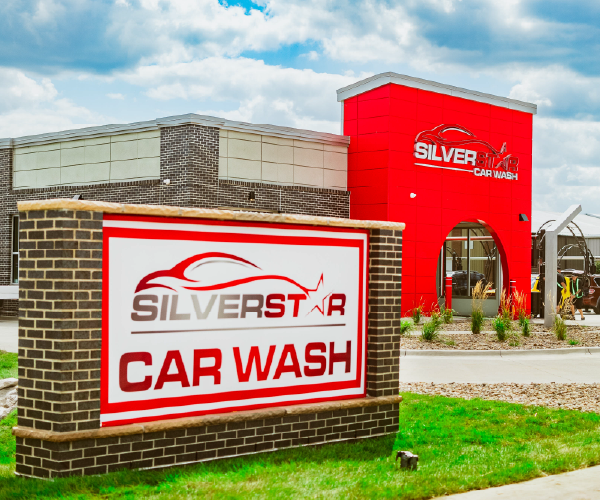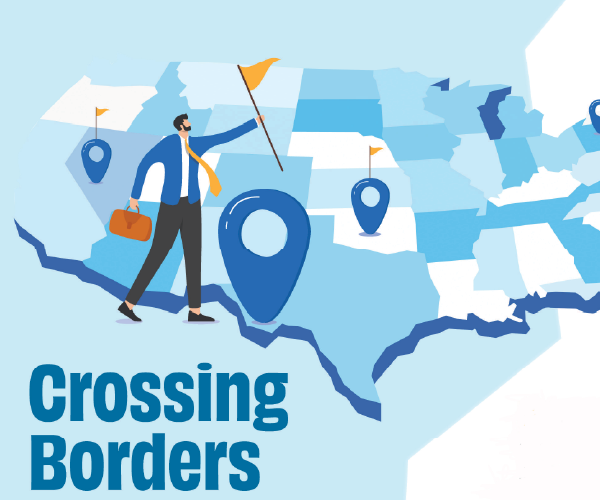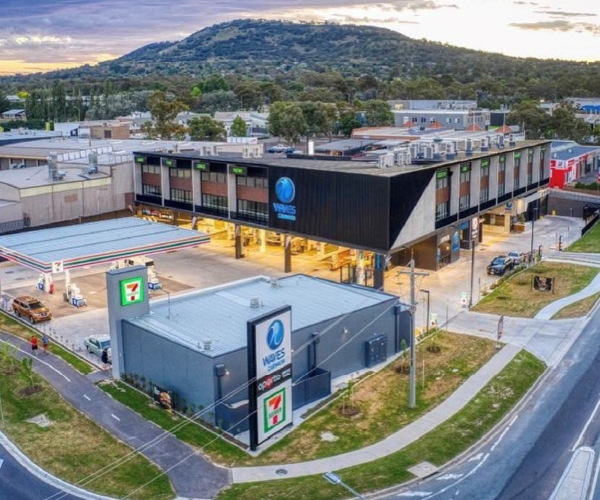
A Whole New Talent Pool
July 1, 2013
7 minute ReadIn 2001, Gene Krahenbuhl bought a rundown carwash in Kansas City, Mo. He renamed it All Seasons Car Wash and invested serious money to bring it up to industry standards; including restoring the hot water system and adding computer-controlled washes and waxes.
At the same time, Karhenbuhl improved staff training and went looking for a ready source of labor. He found it through the city’s local halfway houses, which had plenty of parolees and just-released convicts looking for their first jobs after prison.
“For the first four years of operations, we viewed ex-convicts as just an inexpensive source of help,” Krahenbuhl said. “But over time, we realized that hiring these people meant much more. Helping them get back into the workforce was doing something really positive for them, their families and our customers at large. We found ourselves serving a deeper purpose than just making money: We were and are doing something tangibly good for the community of Kansas City by putting ex-cons to work in our car wash.”
Krahenbuhl is just one of many business owners who are making a real difference by hiring people from disadvantaged groups. These groups include ex-convicts and ex-gang members, but they also encompass the mentally challenged, and people with physical and medical disabilities. And that’s not all: Returning veterans, members of visible minorities, senior citizens, and anyone else who doesn’t fit the societal mold of an ‘ideal employee’ can be said to belong to a disadvantaged group. What they all have in common is that employers often exclude them from the ranks of potentially productive employees — and miss out on the contributions that these people can make to the bottom line.
BUSINESSES WHO GET IT
Across the country, there are many enterprises that grasp the value of hiring people from disadvantaged groups. Some such businesses have been created expressly to make such a difference. For instance, in Minneapolis, the nonprofit urban bakery Cookie Cart gives kids 15 to 18 years old an alternative to gang life by providing them with jobs in the baking and selling of gourmet cookies. Established by Sister Jean Thuerauf in 1988, Cookie Cart has a storefront bakery location on West Broadway Avenue in North Minneapolis.
In 2013 alone, Cookie Cart’s goals are to give 145 teens 22,815 hours of experiential training and work employment. This includes learning to make, hand-decorate and pack the bakery’s famous cookies; and then to sell these cookies successfully through one-on-one and role-playing training sessions. An estimated 60 young people will complete 1,440 classroom hours of advanced job skills training with Cookie Cart’s 360 degrees Program to prepare for a range of careers, while local financial institution employees will donate 700 hours of classroom training for 70 youth employees.
“When young people are given the opportunity to learn skills and make a meaningful contribution to their community, they embrace it,” said Cookie Cart Executive Director Matt Halley. “At the same time, programs like Cookie Cart help teens avoid the negative influences and choices that surround them.”
In Spain, the Ramon Noguera Foundation Group (RNFG) is a nonprofit group that provides employment and opportunities for people with intellectual disabilities and for their families. Among the RNFG’s employment opportunities are its modern full-service car washes, which are located in the Gironès regional communities of Mas Xirgu and Montfullà.
While providing employment for people with intellectual disabilities, the RNFG is also breaking new ground in ecologically responsible car wash technology. The group’s MinAqua project is working on minimizing the consumption of clean tap water for car washing, and reduces the volume and pollutant load of generated wastewater. The MinAqua concept is so scientifically robust that it is being co-financed by the European Union.
In Fresno, Calif., Electronic Recyclers International goes out of its way to “hire individuals from what have typically been marginalized segments of society: former convicts, former gang members, the homeless, people recovering from drug addiction and people coming off of welfare,” said CEO John Shegerian in an online interview with CBS News. “Sometimes people don’t work out, but in the 17 years I’ve been hiring people from disadvantaged backgrounds, I’ve never had a major problem. Most of the time, if someone we’ve hired is slipping back into old habits, he’ll just stop showing up or he’ll give notice to his supervisor.”
Rising Tide Car Wash in Parkland, Fla., makes a difference by hiring people with autism to work in their business. It was launched in 2012 by John D’Eri and his son Tom, to provide opportunities for John D’Eri’s 21-year-old autistic son Andrew and other capable people with autism seeking employment.
It’s a win-win business model: People with autism are often high-functioning and thorough, which provides car wash employers with capable, reliable staff. Meanwhile, the social interaction that autistic employees gain through working with the public hones this group’s coping skills, allowing them to live fuller, more satisfying lives — and to serve customers even better.
This combination works, as indicated by the testimonials posted on www.RisingTideCarWash.com. “The service was impeccable,” wrote Andrea J. Taber. “Your staff was friendly and courteous. I am coming back to support your mission, even if you are a long drive away.” Another customer, Christina Marais, was delighted by the car wash she received. “I was equally as blown away at the professionalism and friendliness of your staff,” she said. “On top of it all, they were super quick and did a phenomenal job on the hand wax.”
Rising Tide’s success in helping people with autism has even caught the attention of mainstream media, such as Forbes magazine. “You might have heard of other companies employing individuals with autism or special needs before, but here’s the breakdown on how impactful this one change to a classic business model can be,” said Forbes contributor Samantha Smith. “A short trip to Rising Tide can remind you that people with autism are capable and hard working, and rather than sympathy they just need respect and support.” She added that “customers feel empowered, too ... Every week someone asks for flyers to hand out because they love Rising Tide’s mission.”
BENEFITS FOR EMPLOYEES AND EMPLOYERS
The best reason to hire people from disadvantaged groups is because they are people first — not the labels that are associated with them. As a result, there are all kinds of talented people just waiting for and eager to work.
“The same truth applies to people with disabilities,” said Jim Schneider, director of editorial and production with Equal Opportunity Publications. Its magazine titles include Careers & the disABLED, Workforce Diversity and Minority Engineer. “The key is to select candidates whose disabilities are irrelevant to the task at hand. For instance, someone with hearing disabilities can work perfectly well using written instructions in a car washing facility, while someone in a wheelchair can easily man the cash register and office.”
In general, members of disadvantaged groups are grateful for the opportunity to become valuable employees. “Often they merely got caught doing the stupid things many of us did when we were growing up, but we got away with it,” said Krahenbuhl. “By giving these people a break at hiring time, you win their gratitude, which often translates into long-term loyalty, commitment and reliability. This is why many of the ex-convicts I’ve hired have stayed with me for many years — and generally caused me less trouble than people I hired off the street.”
In some cases, people from disadvantaged groups can actually be better-qualified hires than mainstream candidates. Students who have taken part in Cookie Cart fit this description; so do the ex-gang members who complete Homebody Industries’ programs in Los Angeles. Started 25 years ago by Father Gregory Boyle, a Jesuit priest, Homeboy combines counseling and education services with tattoo removal, addiction rehabilitation and employment in the nonprofit group’s bakery, diner and other enterprises.
“We put our participants through an 18-month course to help them get past their gang backgrounds and become equipped with the job and personal skills they need to enter to mainstream workforce,” said Jose Osuna, Homeboy Industries’ director of employment services. “I work closely with employers to match up Homeboy graduates with their needs; providing them with motivated employees who receive support from us even after they’re on the job.”
THE PAY OFF
There’s another reason why helping disadvantaged groups is good business: It plays well with the community, who rewards socially responsible businesses with their patronage. That’s been the experience of Great American Car Wash in Fresno, Calif., whose owner believes that you have to give to others first in order to get what you want out of life. This is why the Great American Car Wash regularly stages events in which it gives away 50 percent of money received to charity.
For Krahenbuhl, what began as an experiment in sourcing an under-tapped pool of inexpensive labor has become a morally satisfying form of profitable social service. “It is truly a great feeling to give people who have made bad life decisions due to a lack of opportunities, troubled family backgrounds, or just mistaken thinking that all of us have been guilty of one time or another, the chance to remake their lives into something positive and productive,” he said. “Making a difference is good for their souls and mine, and it is truly a boost to the health and success of my car wash.”
Krahenbuhl’s advice to other business owners? “Don’t miss the chance to make things better by not hiring from disadvantaged groups,” he replied. “There’s a wealth of talent out there just looking for a chance to prove themselves and to reward those who hire them with loyalty and hard work. I wasn’t looking for this lesson back in 2001 when I started hiring ex-convicts for my car wash, but I have learned it nevertheless.”







